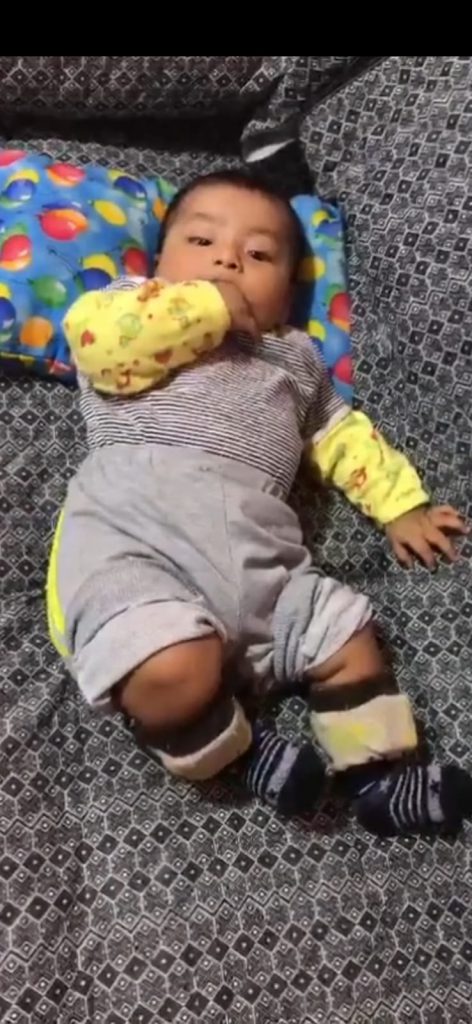Innovation
One of the most exciting aspects of our work is the constant cycle of learning and adapting to continue improving care for our patients.
A recent example is our “Baby Mobile” project, in which we are collaborating with Emory University on a study on the impact of using a smartphone application to help new mothers in rural Guatemala support their young children’s development.
In Guatemala, particularly in rural areas, parents normally don’t have access to information about typical developmental milestones like sitting up and talking and what they can do to encourage them. And babies often spend a lot of time strapped on their mothers’ backs while moms are working to afford food and other basics.
In the Baby Mobile project, mothers learn about what they can do to foster their children’s development and how to include some of these simple activities in their days. They record their child’s sleep, food intake, and activity on the app and get customized feedback based on recommendations in each of these areas depending on their child’s age and health status.
This approach leverages the popular use of smartphones in rural Guatemala to provide primary caregivers with the information and feedback they need to foster optimal development for their children. It underscores the importance of not only a nutritious diet but also adequate sleep and activity like playing, talking, and singing with their children. This is critical work in Guatemala, where 70% of children under five are at risk of sub-optimal development.
In other innovative research, we’re using wearable sensors, like leg wraps, to detect early signs of developmental delays, and studying the impact of daily egg consumption on infant growth and development.





